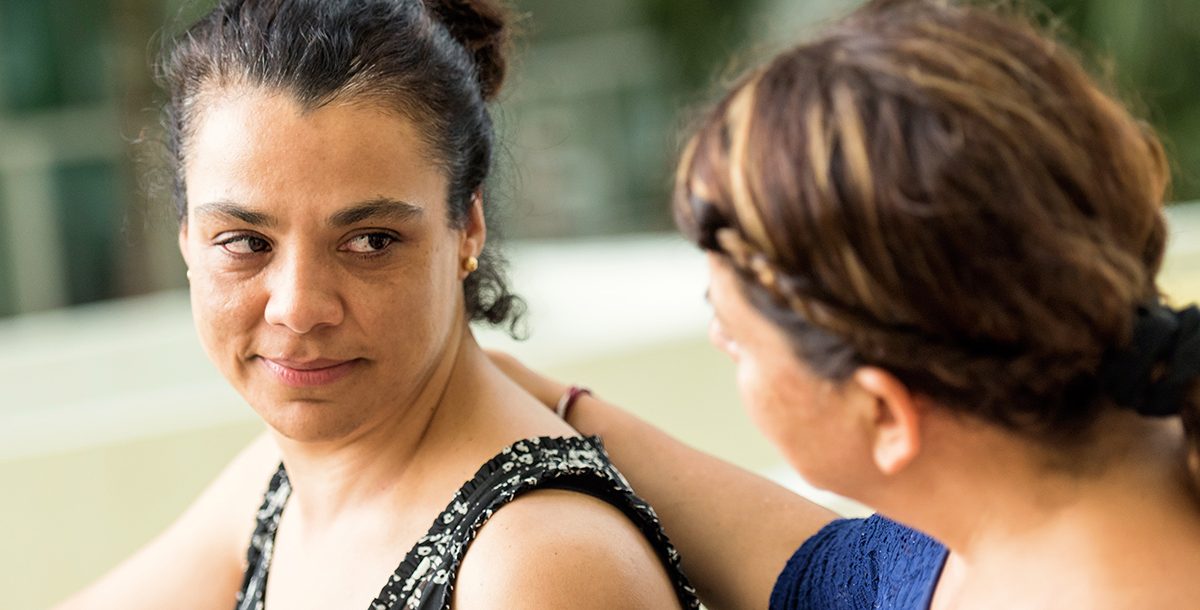When the COVID-19 pandemic hit, we all found ourselves living lives we’re not used to. We’re staying home from work and school, not seeing our loved ones and only leaving the house for essential errands.
At first, it felt like it would only last for a few weeks. But here we are, months later and still dealing with this virus. Plus, we still aren’t sure exactly when it will be safe to return to normal life.
This is why many people are going through something called “caution fatigue.” You may also hear it called “COVID-19 fatigue” or “quarantine fatigue.” Whatever the name, it’s real. And you and your loved ones may be feeling it.
What is caution fatigue?
Caution fatigue is the feeling of being tired of taking precautions so that you don’t contract COVID-19. It can cause stress, anxiety, depression, fear and impatience. You may find that it changes the way you eat, sleep and how productive you are during the day. For some people, it’s only a minor feeling. For others, it can have a huge impact on their mental health.
Caution fatigue can even lead to making bad decisions, like going shopping without a mask or deciding you probably won’t get sick if you go to a party just one time. For some people, it happens because they feel like this situation will never end. Others are tired of following the directions and wonder if there is even a point to them anymore. Most everyone just wants things to feel normal again.
One way you can help during the pandemic is to learn what to do when your loved ones are feeling caution fatigue.
Don’t overshare bad news stories
Watching lots of news during the pandemic is one major cause of caution fatigue. Be careful what you share with your loved ones. Don’t be the person who calls and tells them about the horror stories you saw on TV. Try not to share bad news on your social media channels, too.
Stay connected
Isolation from people can also cause caution fatigue and other mental health problems. That’s why it’s important to find ways to stay connected.
Use video-messaging apps to reach out to family. Do something nice for an elderly neighbor, like clean up their leaves or pick up and deliver their groceries. Get together with a friend at an outdoor park where you can spend time together while still social distancing. You never know how much one little act of kindness or call to say “hello” will help.
Encourage exercise
Many experts recommend getting exercise when you’re experiencing caution fatigue. So, encourage your loved one to get moving. Maybe you can arrange to meet up at the local hiking trail. There, you can enjoy the fresh air and go for a walk together while social distancing. Get together for an activity or sport that doesn’t require direct contact, like tennis, biking or kayaking.
If it’s not safe to get together in person, turn it into a challenge. Have a contest to see who can walk the most steps each day. Send them a new yoga workout that you love, or create a playlist of your favorite dance songs and send it along.
Be kind
If you noticed your loved ones aren’t being as productive as usual, don’t scold them. Let them know it’s okay to take the time they need to relax and recharge their batteries. This goes for kids too. If your kids want to spend a day watching movies or playing video games, let them — as long as it doesn’t become a daily routine.
Send a care package
If you have a loved one who’s feeling down, send them something to cheer them up. Go online and pick out some good books. Or, send them flowers. Get them a subscription to a streaming service or send them a meal from their favorite restaurant. Just let them know you care.
Stick to the plan
Remember, it’s important to keep following health precautions even when we don’t feel like it. The good news is that over time, many of these precautions will become habits and no longer feel like a stressful disruption of our normal routines.
It’s possible for the ongoing stress of caution fatigue to lead to depression. If you know someone who is showing signs of depression, encourage them to seek professional health.
Learn about the behavioral health services we offer at Bon Secours and find a provider near you.





